This turned out better than I expected. Vampire: The Masquerade: Swansong gets off to a slow start, has some real pacing issues, and is mostly about navigating dialogue trees. If you can forgive that, and if you get past its slow introduction, Swansong broadens into an interesting combination of investigation, puzzle-solving, and outright survival horror.
Mileage may vary, especially since you’re unquestionably playing as the villains of the story, but it’s a solid pick if you’re looking for a modern, choice-based adventure game.
Vampire The Masquerade – Swansong: Let’s Be Monsters
If you aren’t already familiar with the Vampire tabletop game, Swansong probably isn’t the place to start. It’s got a decent in-game Codex that adds a new entry when you encounter a new word or name, but the setting-specific terminology piles up fast.
The world is a version of Earth where vampires (or “Kindred”) have controlled human society almost from the start. In Vampire, the Illuminati is real, its members are literal bloodsuckers, and they amuse themselves by constantly screwing one another over for power and influence.
Swansong is set in 2019 Boston, where Hazel Iverson has just become the vampiric ruler of the city. She puts together a party to cement and celebrate a new diplomatic alliance, but that party is promptly attacked by unidentified assailants. The result is the death or disappearance of nearly three-quarters of the vampires in Boston.
You play Swansong as three of the remaining Kindred, who Hazel employs in a desperate attempt to get to the bottom of things. You rotate between Galeb Bazory, a world-weary former merchant and the oldest surviving vampire in the city; Marie-Marguerite “Emem” Louis, who owns a chain of jazz clubs and wants little to do with other Kindred; and Leysha, who compensates for being mildly insane with her ability to occasionally see the future.
Each character seeks to uncover a different piece of the overall puzzle, and eventually, decide whether or not they want to put it together.
Swansong does not put its best foot forward. It opens with a short sequence set in Hazel’s building, introducing the main characters and many of their personal dramas, well before you’re given any particular reason to care about any of them. It’s like being stuck at a cocktail party where everyone’s quietly panicking.
Worse, you can’t skip dialogue at all on your first playthrough, and there’s a lot of dialogue. This is probably Swansong‘s biggest flaw, especially if you opt to replay any section of the game; it adds a lot of frustrating dead time, especially if you’re someone like me who reads quickly.
Once you move on to the exploration stage, though, Swansong gets more interesting. In the field, each character is set loose in a particular environment, with a list of objectives that you can generally accomplish, or fail, in any particular order.
That can include social challenges, weird puzzles, context clues, and if necessary, drinking a bunch of helpless humans like juice boxes. Generally, you explore an area in search of whatever interactive objects you can find, then try to figure out what if any relevance they have to your current business. It’s a pixel hunt, but a reasonably fair one, although this is the one game I’ve played lately where I’d actually want something like detective vision.
The first time you play as a character, you’re given the option to customize their mundane skill sets to set them up for fast-talking, manipulation, interrogation, or detective work. Each character also has a unique assortment of vampiric abilities, called Disciplines, which gives you some extra supernatural options.
Along the way, you balance two consumable statistics, Willpower and Hunger, which fuel your social abilities and Disciplines, respectively. Willpower’s difficult to regain on the go, while Hunger’s actually surprisingly easy to regain, as long as you can find an isolated human or rat to snack on. If you let your Hunger build up too far, though, you’ll end up being forced to feed.
On an initial run, you have to carefully balance what you can do against what you can afford to do constantly, which sets up an ongoing tension. It’s a bit like conserving every bullet you can in a survival horror game, but here, it’s going for as long as you can before you bite out a cop’s throat.
The interesting thing about how Swansong handles these systems is that it’s not afraid to set you up for failure. On an initial blind playthrough, you’re almost guaranteed to run into a few scenarios that you cannot avoid and aren’t prepared for.
This primarily involves social events, called Confrontations: high-stakes arguments where part of the overall mystery is usually at stake. There’s at least one Confrontation that I don’t think is even possible to win without preparing for it right from the start of the game, although it’s technically optional.
It’s an interesting take on choice-based systems. I don’t think I quite have a handle on what options do and don’t matter in Swansong, and won’t until I take more extensive notes on a second run, but it’s not a game that’s afraid to make you feel like a complete idiot.
It reminds me of last year’s Gamedec, which has a similarly relaxed attitude towards failing; it lets you reach the end regardless, but there’s a big difference between crossing the finish line and staggering across it. By the same token, the fact you can screw up does make succeeding sweeter.
The interesting, subtle horror at work in Swansong is one of my favorite parts of the game. Generally, when a video game advertises itself as a choice-based experience involving morality, you’re offered the chance to be either a pillar of virtue or a petty dick. There might be a little gray area, but it’s usually binary.
Swansong, no matter how you play it, is very good at reinforcing a simple idea: existing in vampire society makes you, at bare minimum, an accessory to mass murder. Characters casually admit to atrocities, and your character reacts with the equivalent of a shrug. That’s the cost of doing business as a Kindred. We eat people here, son. Ghoul at the door should’ve told ya.
It adds a lot overall, especially as you reach Swansong‘s halfway point. It’s a more subtle depiction of evil than you usually get in a video game, where you mostly see the banality that surrounds it: the logistics, the paperwork, the immediate aftermath.
It’s chilling without ever resorting to full-on splatterpunk. You can do some pretty horrible things to people on purpose if you’re of a mind to, but your personal violence isn’t a patch on what vampires inflict simply through the systems they’ve established.
Vampire The Masquerade: Swansong Review — The Bottom Line
Pros:
- Open-ended puzzle solutions that reward exploration and clever thinking.
- A dark story that (mostly) doesn’t revel in gore for gore’s sake.
- Some solid implementation of detective/investigation mechanics.
- Balancing two limited stats keeps the tension level high.
Cons:
- Can’t skip dialogue you’ve already seen.
- Previous knowledge of Vampire: The Masquerade is almost required.
- It sets you up for repeated failure on an initial run.
- The voice acting goes from adequate to horrible at random.
- A high number of audio bugs.
Swansong was developed by Big Bad Wolf, which is an arm of Cyanide Studios. As such, I wasn’t really looking forward to this one; Cyanide’s games usually aren’t boring, but their last project based on a tabletop game was Werewolf: The Apocalypse – Earthblood. Mini-review: I did not care for it. Neither did others.
While Swansong shares one of Earthblood‘s big flaws — both games throw you straight into the deep end of an established and complex setting, which makes them thoroughly inaccessible to newcomers — it’s a much more solid project. Its horror is subtle, its puzzles are mostly difficult but fair, and it’s got a surprising amount of replayability.
If you don’t mind playing an outright monster, and you can put up with the slow pace, Swansong is a much better adventure game than I expected. I’d play another one of these.
[Note: Nacon provided the copy of Vampire: The Masquerade — Swansong used for this review.]

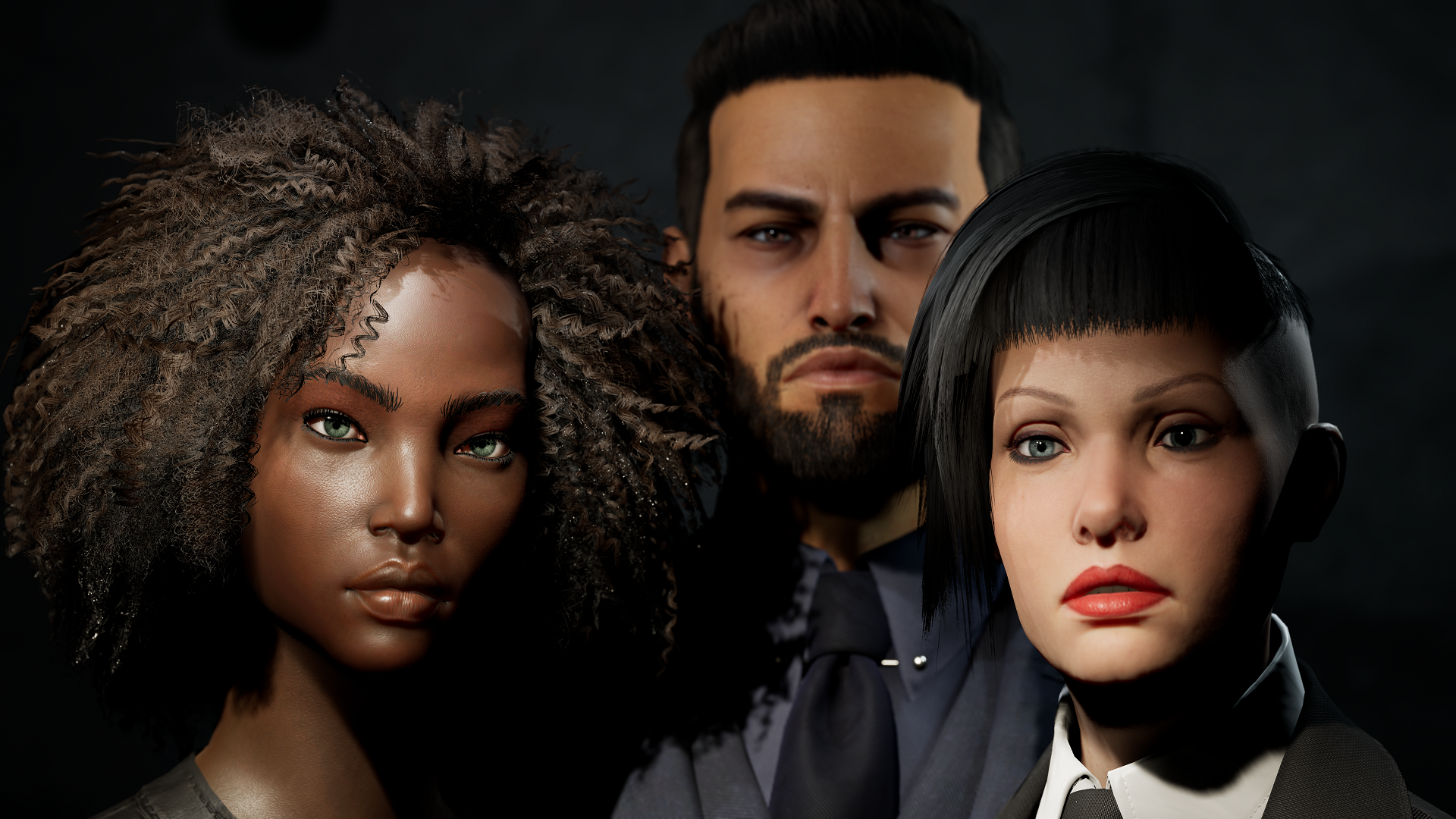
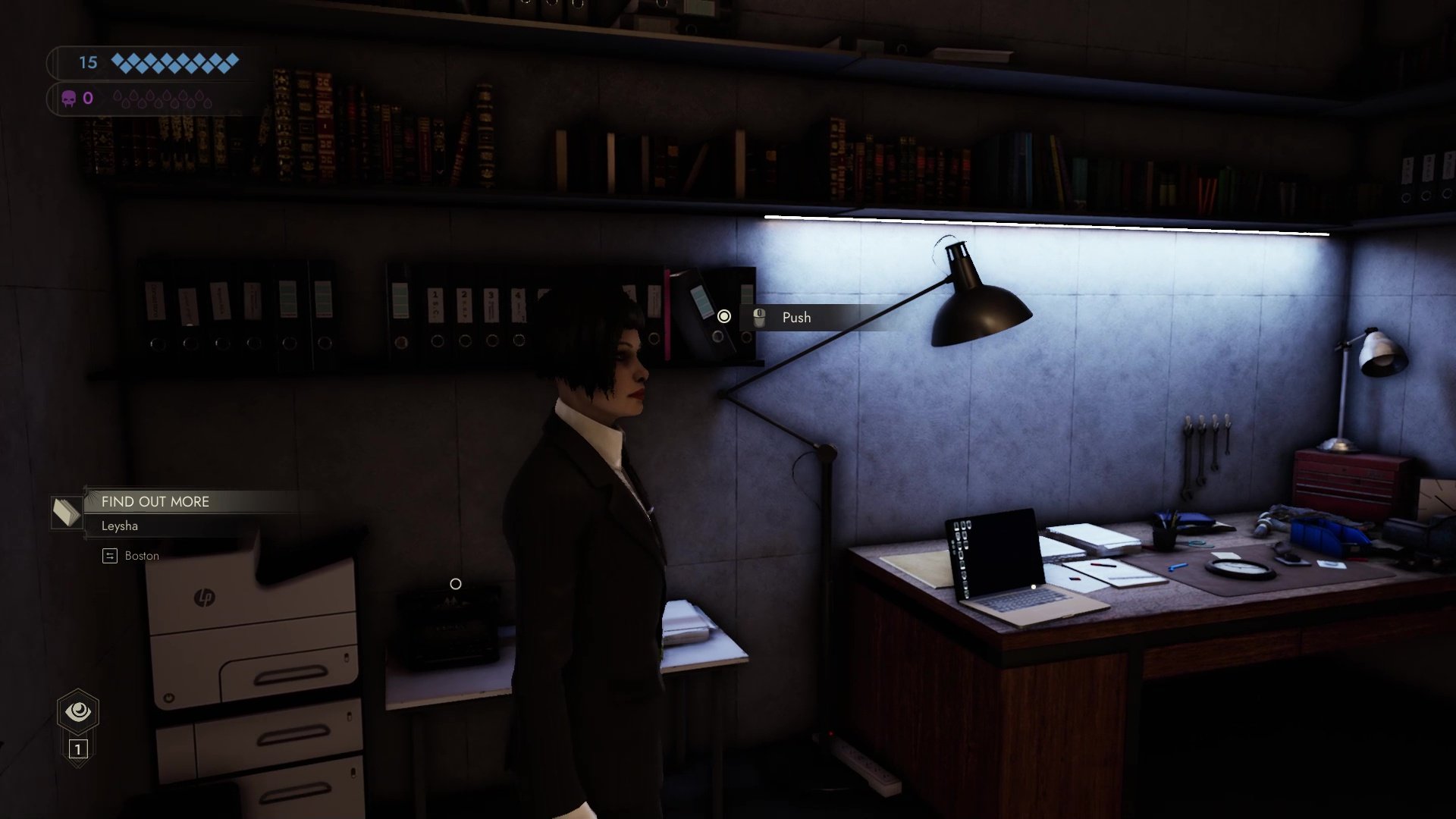
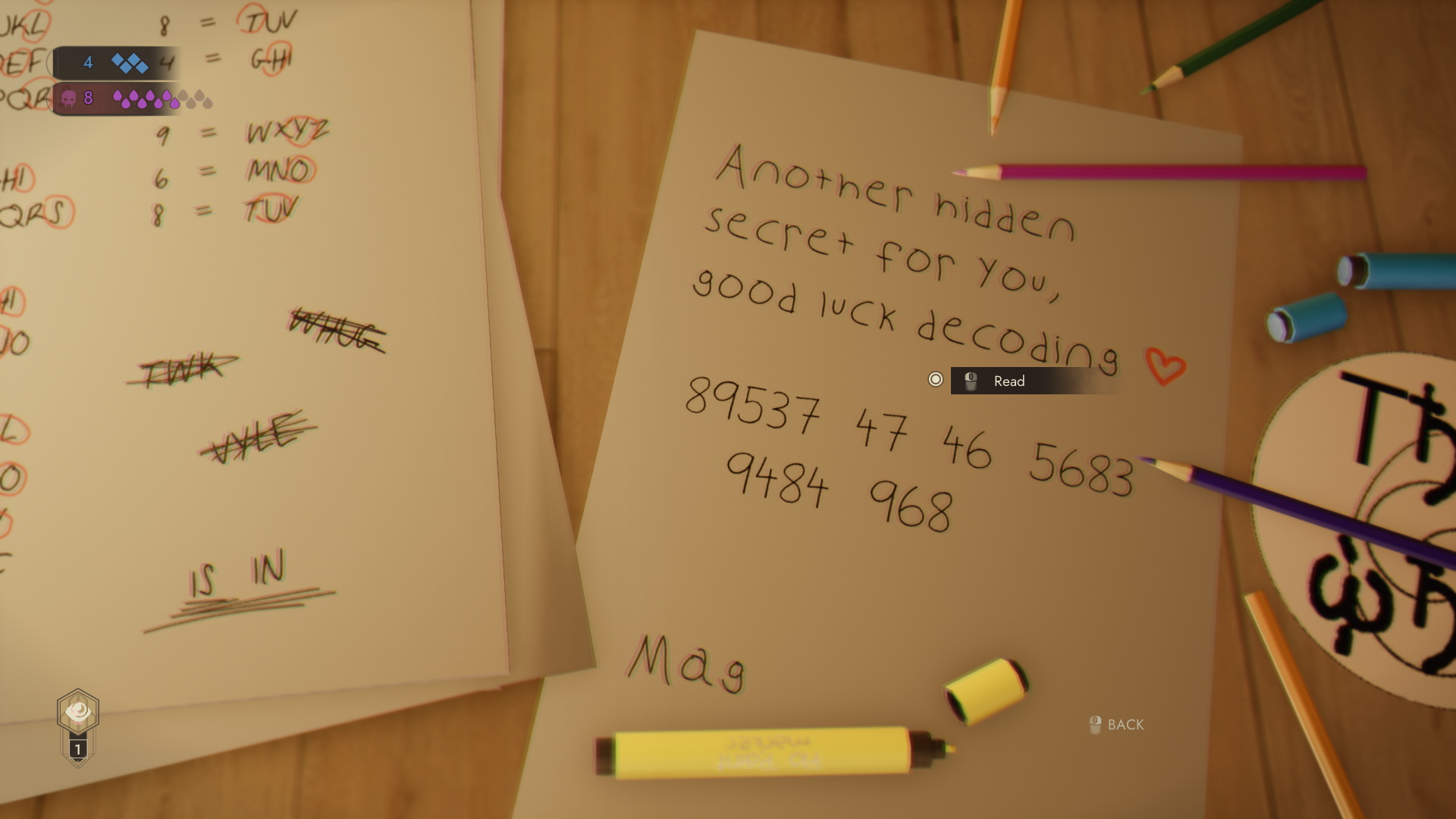
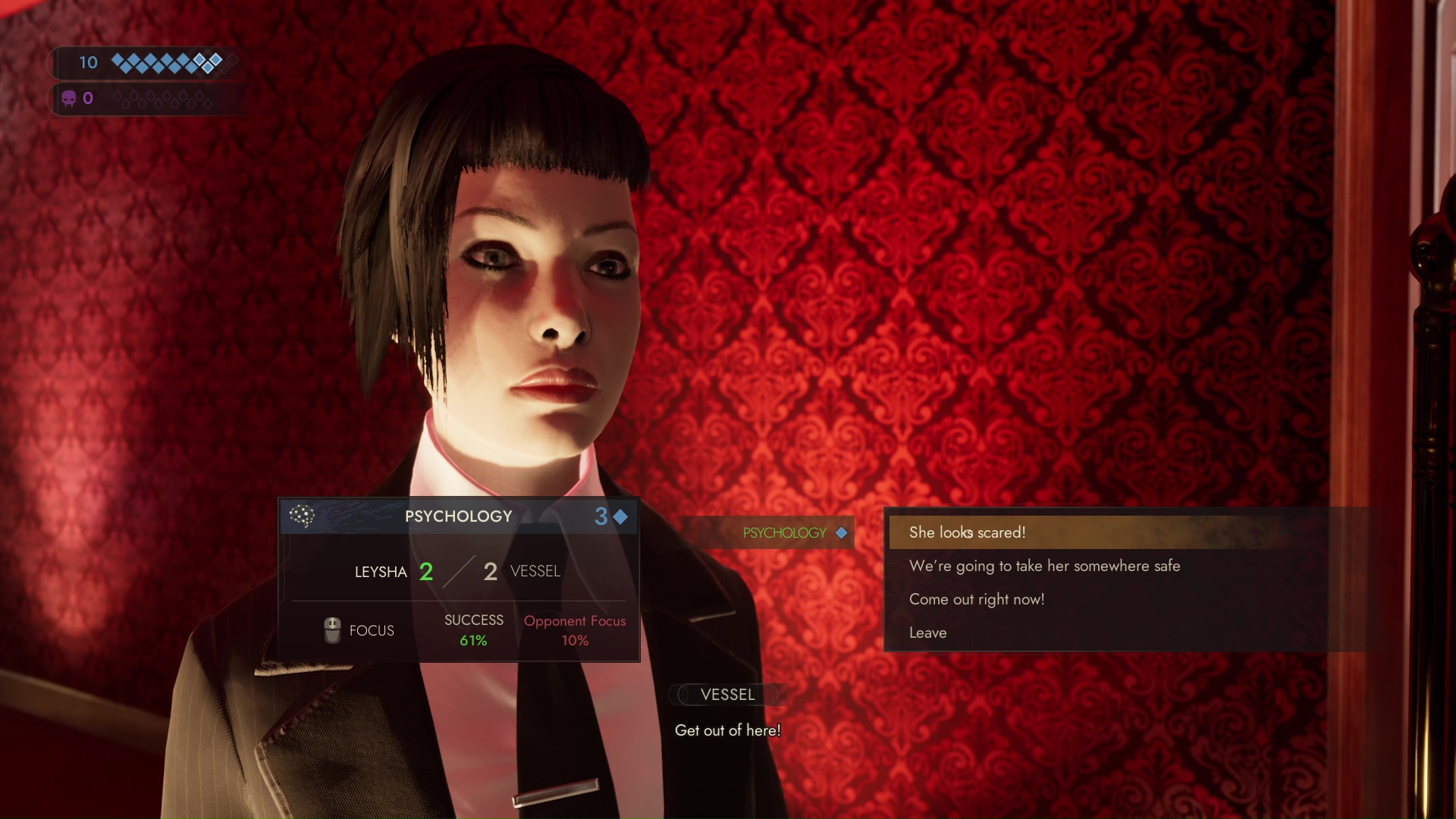
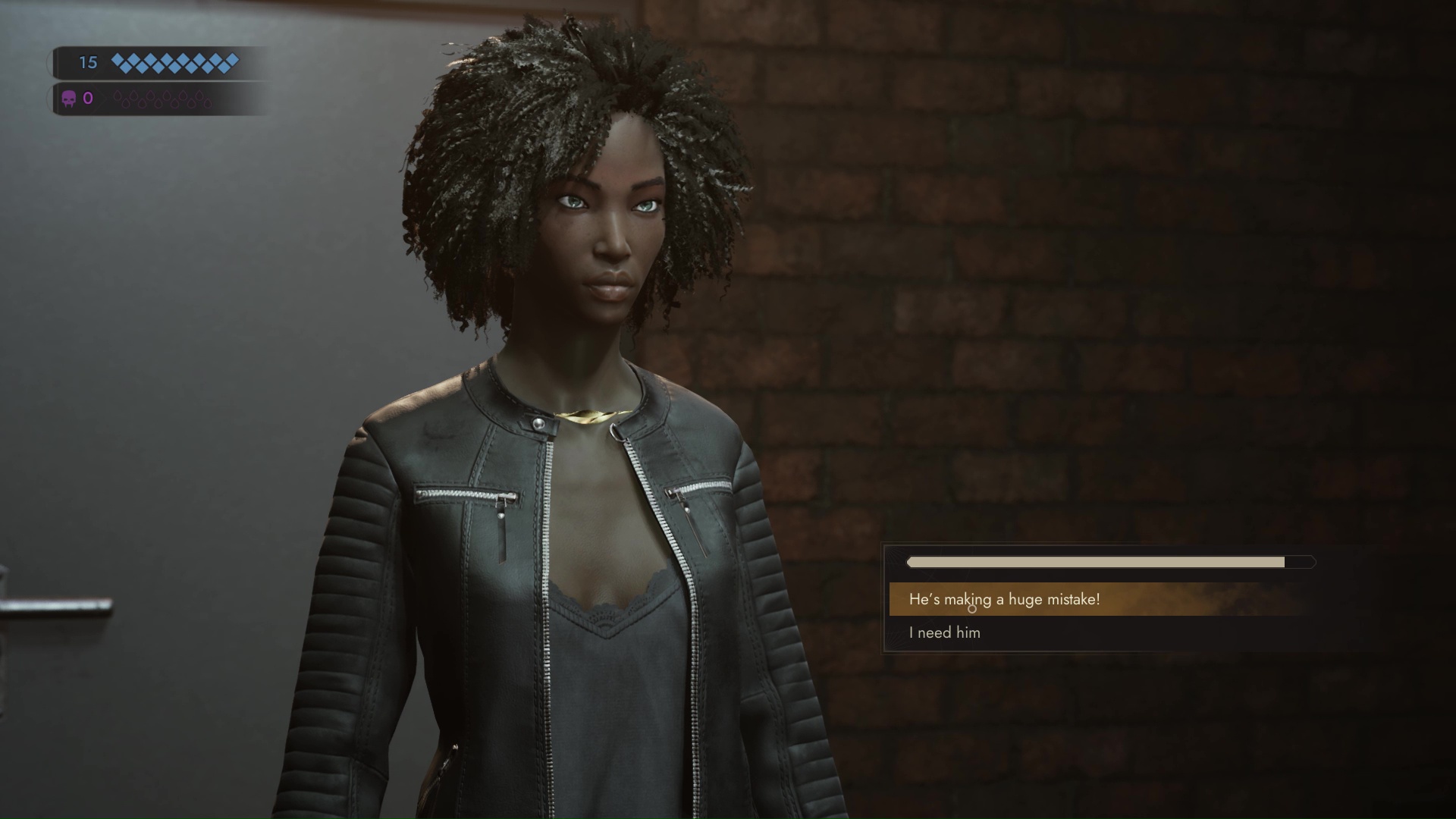





Published: May 18, 2022 03:00 am